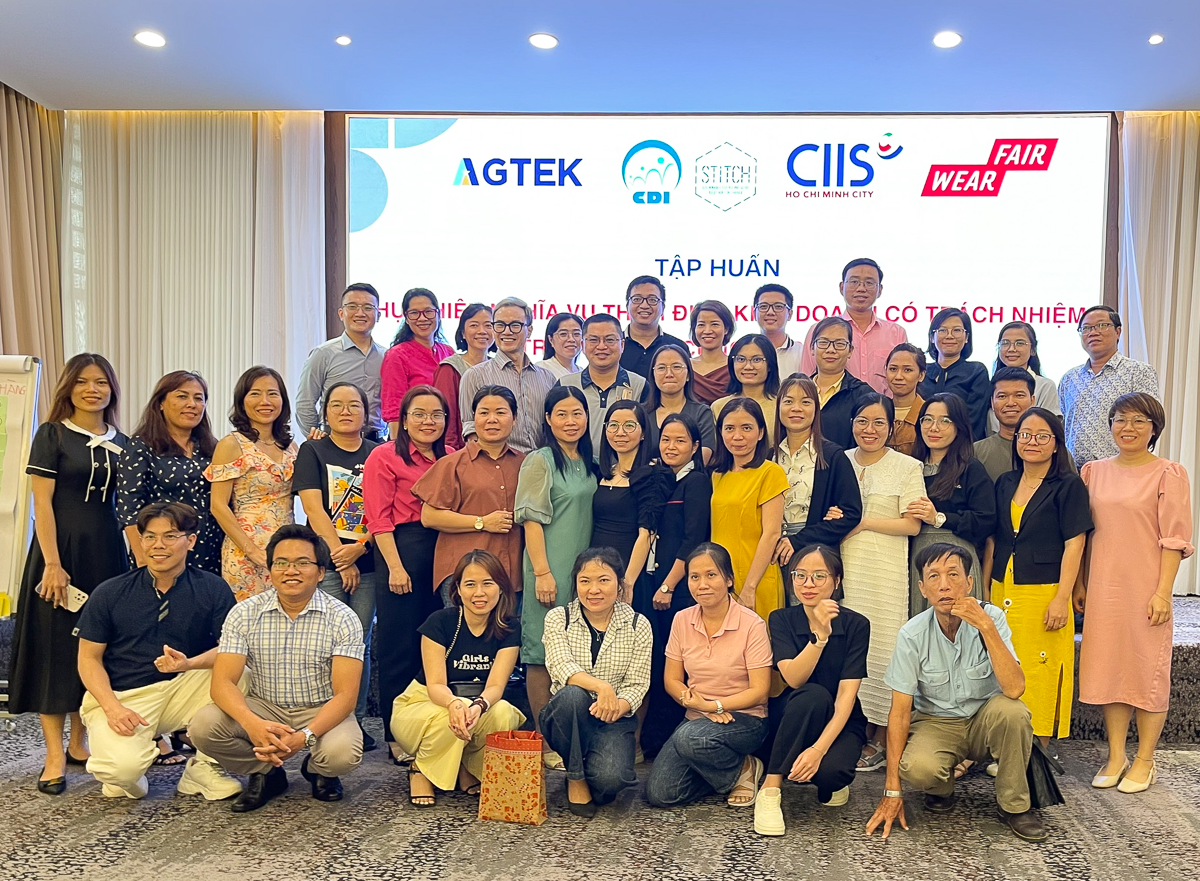TRAINING “PERFORMING RESPONSIBLE BUSINESS DUE DILIGENCE OBLIGATIONS IN THE TEXTILE AND GARMENT SUPPLY CHAIN”
On December 11th and 12th, 2023, the Center for Development and Integration (CDI) coordinated with the Ho Chi Minh City Association of Garment Textile Embroidery and Knitting, with the support of City Centre of International Integration Support Ho Chi Minh City International (CIIS) and Fair Wear Organization in Vietnam successfully organized the training “Performing responsible business due diligence obligations in the textile and garment supply chain” within the framework of the project program “Improving the capacity of businesses and trade unions on responsible business due diligence in the global textile and garment supply chain”
The training had the attendance of more than 60 participants from 30 businesses in the textile and garment supply chain in Vietnam, including spinning, weaving, garmenting, washing, printing, embroidery, garment accessories, etc. in the southern region.
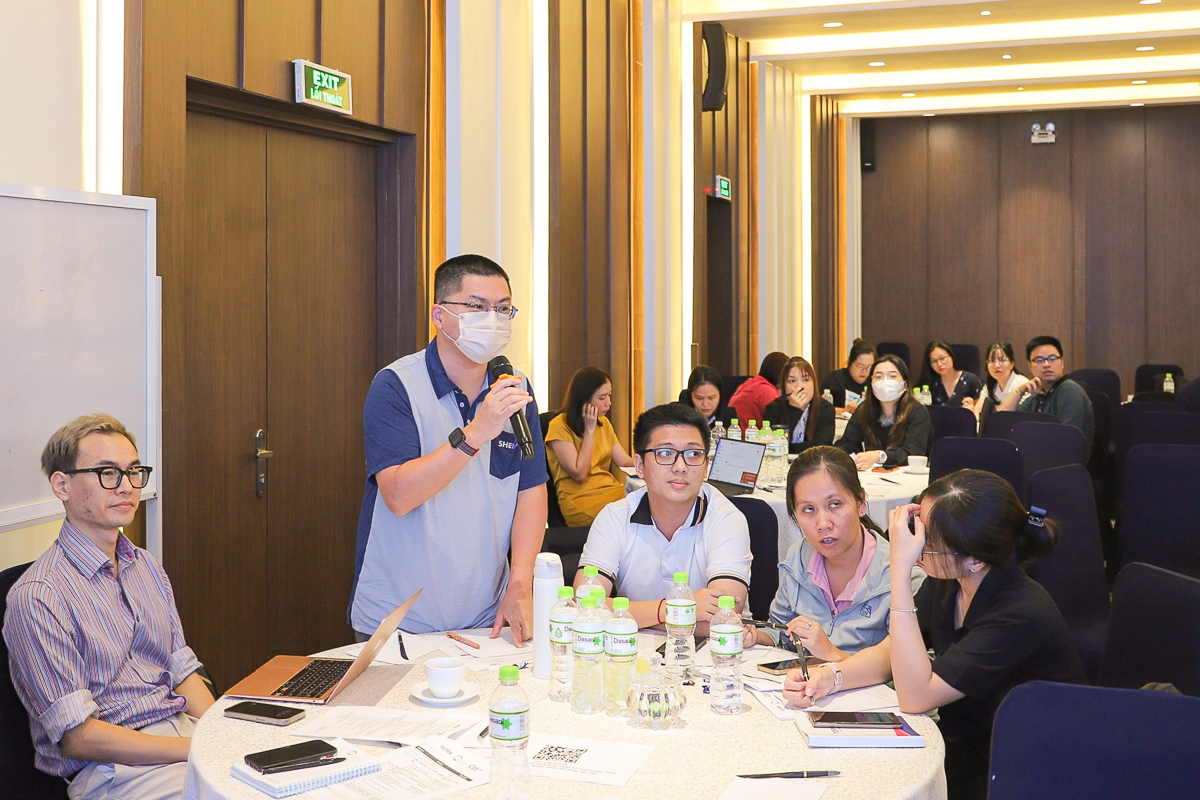
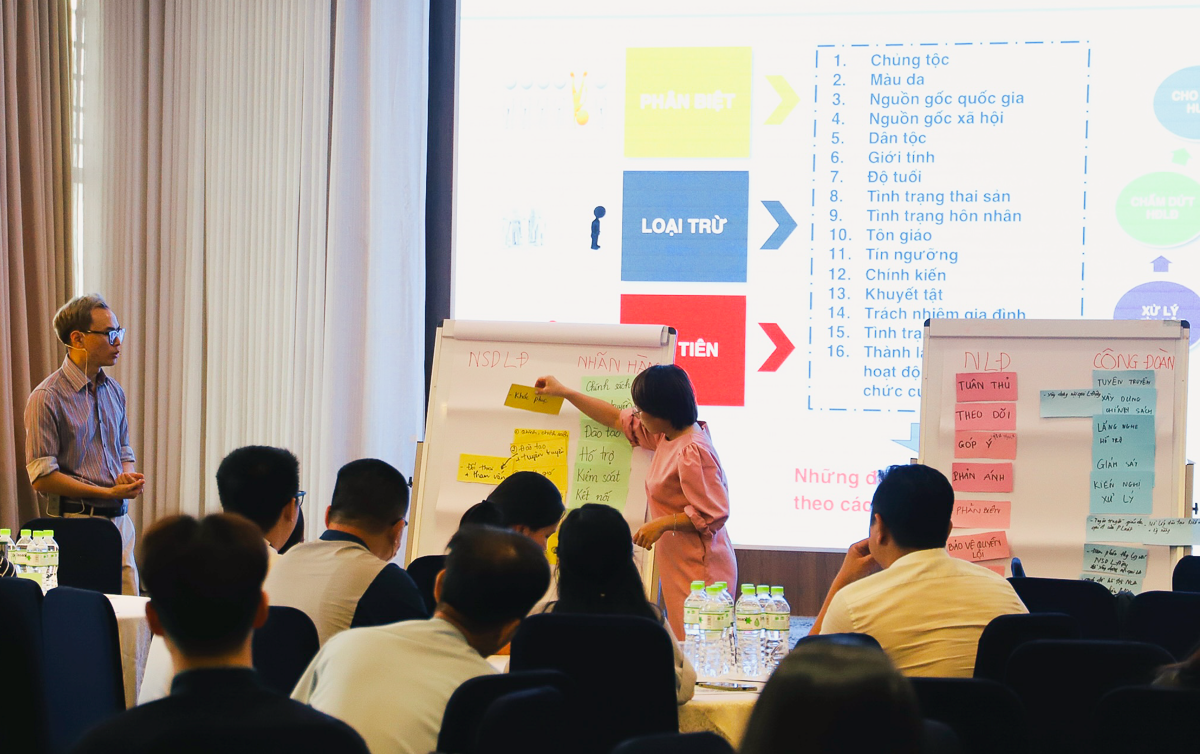
In the training course, textile and garment enterprises’ management and grassroots trade unions could strengthen the understanding about responsible business due diligence in the supply chain, the difference between responsible business due diligence and corporate social responsibility, how to conduct responsible business due diligence within an enterprise. Also, businesses were introduced, provided and instructed to use a toolkit to self-identify and self – conduct risk assessments of working conditions, with meaningful stakeholder engagement including trade union and workers; so that businesses can comply with national and international labor laws as well as customer standards. In the first training of the program, the businesses were introduced and instructed on the specific topic of “discrimination at work” along with the risk assessment toolkit.
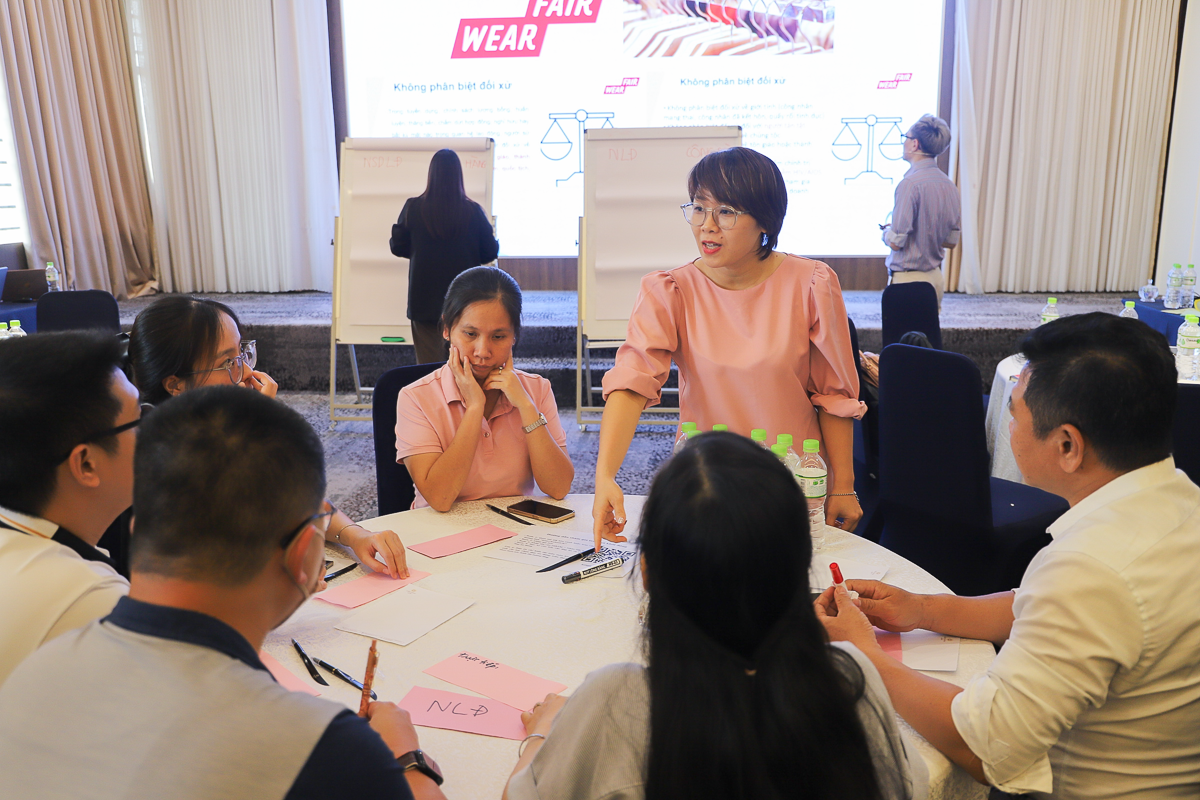
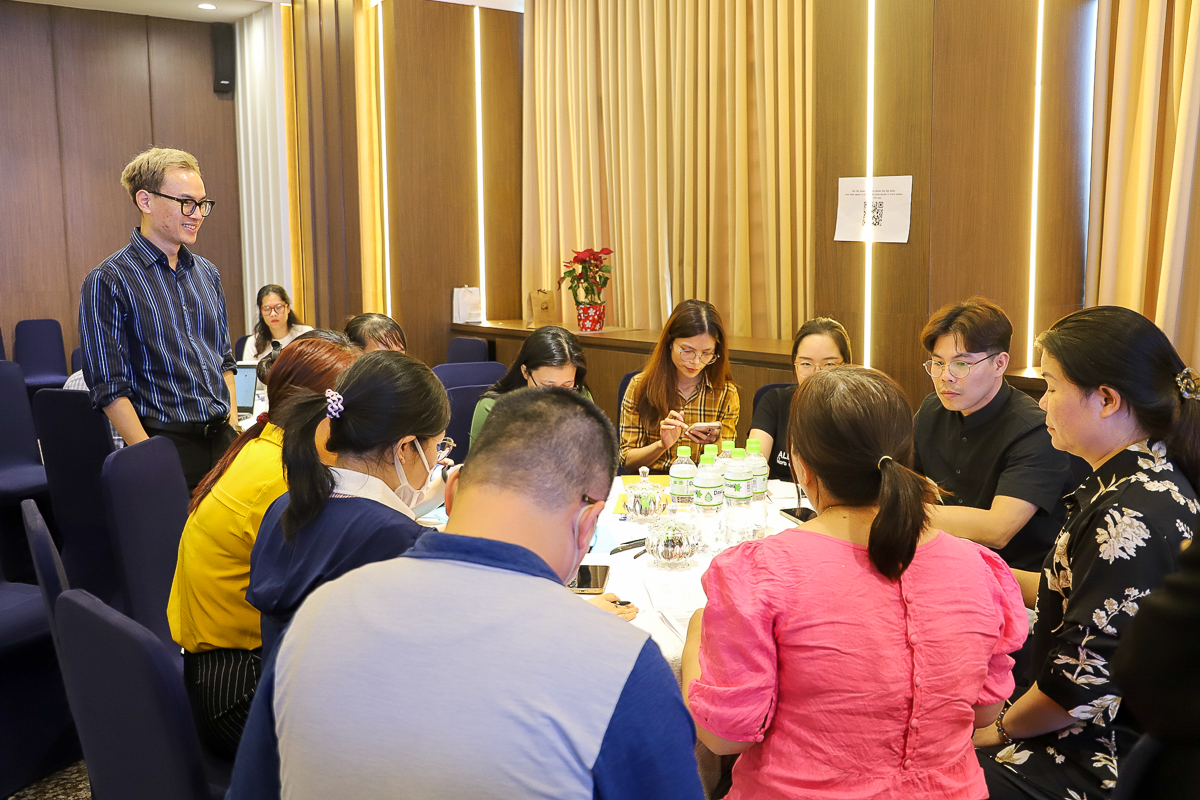
The training ended with a developed plan for the next 5 months, including direct coaching on using toolkit to conduct risk assessment on discrimination at workplace at 4 pilot factories. The program will then continue with a second training course on remediation, minimizing negative impacts and preventing risks after identifying and assessing risks. Finally, there will be a workshop to share the results of piloting the toolkit and good practices in conducting supply chain due diligence.
The program will be implemented in the North and Central regions, and CDI hopes that the upcoming series of activities will receive the active participation of textile and garment enterprises across the country, promoting good practice at assessing risks as well as conducting supply chain due diligence, which toward changing the approach and developing capacity of business, in order to transferring from assessing to identify and resolve violations to managing potential risks to preventing and minimize negative impacts and cost for businesses in the supply chain.
